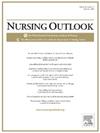界定以科研为重点的教师科研成功的内容分析。
IF 4.1
2区 医学
Q1 NURSING
引用次数: 0
摘要
背景:注重研究的教师在参与研究和取得成功方面面临障碍。不同机构、研究团队和个人对研究成功的定义各不相同。目的:界定研究成功的定义,确定当前的障碍,以及减少这些障碍的策略,以提高以研究为重点的教职员工的研究成功率:方法:在一次有 22 人参加的研究务虚会上,采用了定性研究设计,其中包括焦点小组和改良德尔菲法。通过内容分析对数据进行了分析:研究成功的衡量标准包括传播、规划/组织、时间、健康、合作、指导、资金、影响和转化以及认可。最大的障碍是需求竞争、时间、团队纠纷、人际关系、工作量、资源、期望差异和资金成功。与会者将这些障碍确定为缓解战略的重点:讨论:同事讨论、同行反馈和专门会议讨论研究想法的机会可以帮助专注于研究的教师提高研究成功率和生产力。本文章由计算机程序翻译,如有差异,请以英文原文为准。
A content analysis defining research-focused faculty research success
Background
Research-focused faculty face barriers to research engagement and success. Definitions of research success vary among organizations, research teams, and individuals. An institution must identify barriers before implementing mitigation strategies.
Purpose
To define research success, identify current barriers, and strategies to mitigate those barriers to increase research-focused faculty’s research success.
Methods
A qualitative research design incorporating focus groups and aspects of a modified Delphi approach was implemented at a research retreat with 22 attendees. Data were analyzed by content analysis.
Findings
Measures of research success included dissemination, planning/organization, time, wellness, collaboration, mentoring, funding, impact and translation, and recognition. Top barriers were competing demands, time, team disputes, interpersonal relations, workload, resources, expectation differences, and funding success. Attendees identified these barriers as the focus for mitigation strategies.
Discussion
Opportunities for collegial discussion, peer feedback, and dedicated meetings to discuss research ideas can help research-focused faculty increase their research success and productivity.
求助全文
通过发布文献求助,成功后即可免费获取论文全文。
去求助
来源期刊

Nursing Outlook
医学-护理
CiteScore
6.20
自引率
7.00%
发文量
109
审稿时长
25 days
期刊介绍:
Nursing Outlook, a bimonthly journal, provides innovative ideas for nursing leaders through peer-reviewed articles and timely reports. Each issue examines current issues and trends in nursing practice, education, and research, offering progressive solutions to the challenges facing the profession. Nursing Outlook is the official journal of the American Academy of Nursing and the Council for the Advancement of Nursing Science and supports their mission to serve the public and the nursing profession by advancing health policy and practice through the generation, synthesis, and dissemination of nursing knowledge. The journal is included in MEDLINE, CINAHL and the Journal Citation Reports published by Clarivate Analytics.
 求助内容:
求助内容: 应助结果提醒方式:
应助结果提醒方式:


